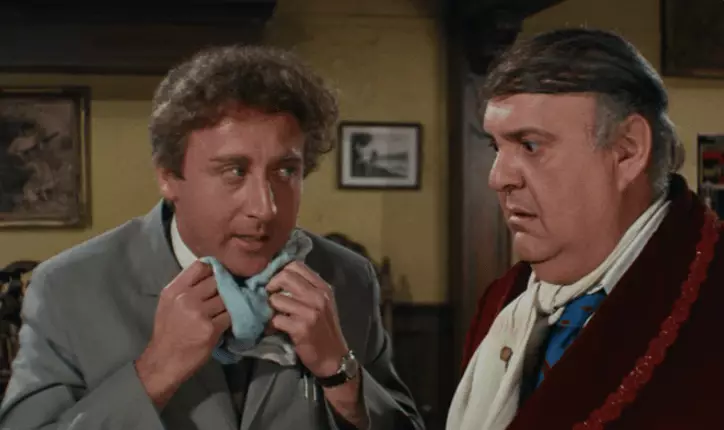The musical adaptation of Mel Brooks’ iconic film “The Producers” stands as a testament to the unpredictable nature of creativity in the entertainment industry. Initially, Brooks was hesitant to transform his beloved 1967 film into a musical. He viewed the original movie, which earned him an Academy Award for its screenplay, as a perfectly crafted piece of cinema. It wasn’t until the persistent urging of producer David Geffen that Brooks entertained the idea of integrating music into a storyline he deemed already complete. This situation exemplifies a common dilemma in artistic endeavors: the challenge of reimagining existing work.
Geffen’s relentless pursuit ultimately influenced Brooks to reconsider. As the famed filmmaker recounts, Geffen’s daily calls wore down his reservations, leading him to a crucial realization: sometimes, outside perspectives can unveil possibilities not initially apparent to the creator. This moment highlights the importance of collaboration in art—an echo of the adage that two heads are better than one.
With newfound enthusiasm, Brooks teamed up with the late Thomas Meehan to craft a musical that would retain the spirit of the original while introducing a fresh layer of entertainment. One of the most provocative choices was the inclusion of “Springtime for Hitler,” a musical number that celebrates one of history’s darkest figures in a satirical light. This bold move showcased Brooks’ genius for blending humor with controversial themes—crossing the boundaries of conventional storytelling and challenging audiences in the process.
The plot centers around Max Bialystock, a down-and-out Broadway producer, who concocts a scheme to stage a flop in order to pocket the investments. The absurdity of his plans—mainly staging a homage to Adolf Hitler—critiqued not just the theater industry but also the notions of success and failure. It’s a daring narrative that defies expectations and reveals the complexities of human ambition.
A Phenomenon of Success
Upon its Broadway debut in 2001, “The Producers” became a sensational achievement, raking in a staggering 12 Tony Awards, including Best Musical. Critics hailed it as a “sublimely ridiculous spectacle,” demonstrating the power of innovative reimagining. Such accolades not only solidified Brooks’ status as a cornerstone of American comedy but also popularized the genre of musical theater.
The global spanning of the show’s success, including its imminent staging at London’s Garrick Theatre, illustrates the timeless appeal of Brooks’ work. The continued relevance of “The Producers” also reflects a broader viewer appetite for provocative storytelling intertwined with humor and melody.
Recently, Brooks took a moment to pay tribute to the late actor Gene Hackman, who notably starred in the 1974 film version of “The Producers.” Through a reflective post, Brooks connected the dots between his own projects, recalling Hackman’s association with the cherished Gene Wilder. It’s these personal stories from Brooks that reveal an intimate side of the entertainment legend, reminding us that behind successful productions lies a rich tapestry of relationships and shared experiences.
The evolution of “The Producers” from film to musical adaptation serves as an inspiring story of artistic risk, collaborative influence, and the power of storytelling, proving that sometimes, the best creations emerge from the most unexpected beginnings.

